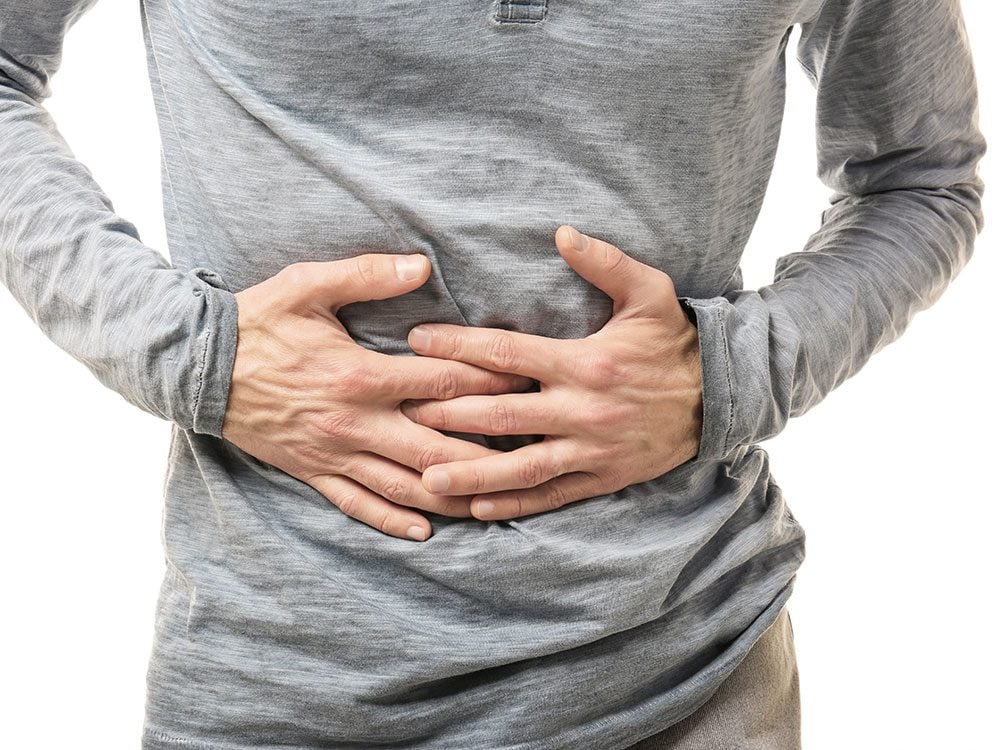Stomach Bug vs. Food Poisoning: What’s the Difference?
Not sure what made you sick? Read on.

Your stomach is killing you and you’re feeling nauseous. Are you contagious, or was your food contaminated?
Telling the difference can be tricky because you might not realize you’d been in touch with someone who was sick, says Rabia De Latour, MD, gastroenterologist at NYU Langone Health. While food poisoning shows up within one to eight hours of eating, you (and the person you caught the bug from) won’t get stomach flu symptoms until 24 to 48 hours of being around the person you caught it from—and that person might not have shown symptoms yet either. “There’s this incubation period,” says Dr. De Latour. “They’re walking around and somewhat contagious.”
Once symptoms do show up, a stomach bug and food poisoning look almost identical: stomach pain, nausea, vomiting, and diarrhea. But one telltale sign that your symptoms are serious food poisoning could be high fever or blood in the stool, says Neal Shipley, MD, medical director of Northwell Health-GoHealth Urgent Care. “Viral illnesses are less aggressive,” he says. See a doctor if you have high fever or bloody vomit or stool, or your symptoms don’t get better within two days. (Check out these 10 Ways to Outsmart the Stomach Flu.)
If your symptoms aren’t serious, try retracing your steps to figure out if you ate anything that had been left out too long or wasn’t fully cooked. If others you’d eaten with are having the same stomach issues, there’s a good chance you all got food poisoning, says Dr. De Latour.
Both stomach bugs and food poisoning are treated the same way—drinking plenty of clear liquids and eventually reintroducing bland foods—but knowing the difference will help if you end up at the doctor’s office. Stomach bugs are viruses, but food poisoning can come from a virus, bacteria, or parasite, says Dr. De Latour. With the stomach flu, antibiotics (which only work against bacteria) won’t help your symptoms at all, says Dr. Shipley. “The most common side effect from antibiotics is upset stomach or diarrhea,” he says. Instead, a doctor might prescribe medicine specifically designed for upset stomach or recommend an over-the-counter product.
Washing your hands more often will help ward off both stomach flu and food poisoning, says Dr. De Latour. You’ll keep sick people’s germs out of your own body and avoid cross-contaminating food while cooking.
Tummy troubles? Check out these 9 Natural Remedies for an Upset Stomach.



